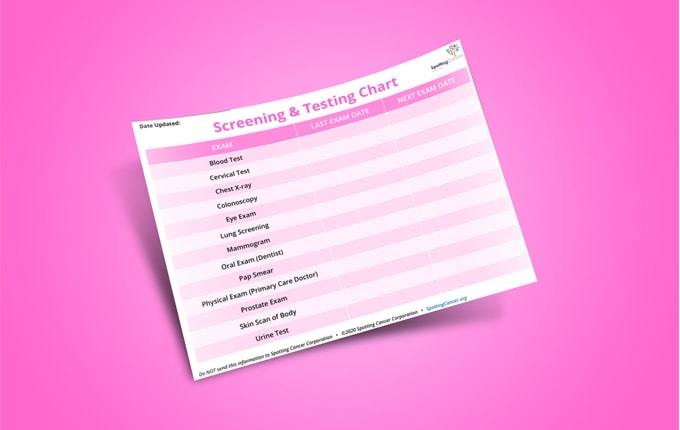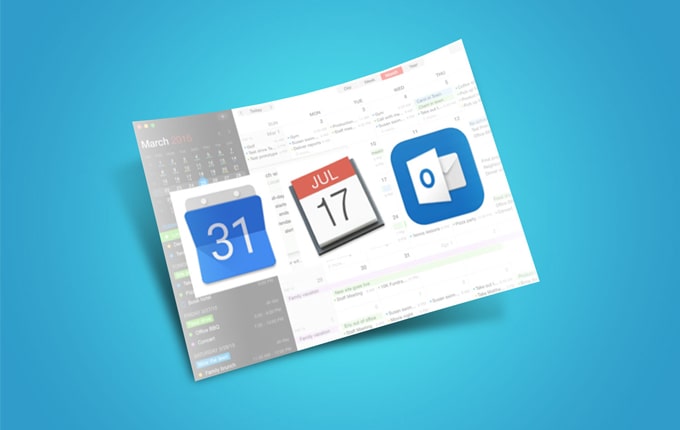Stool Lab Test (101, 102)
Cancer screening & testing helps you #SpotandSurvive
Download Our Spot and Survive Guides Free Now!
Learn the signs to potentially save yours and your family’s life.
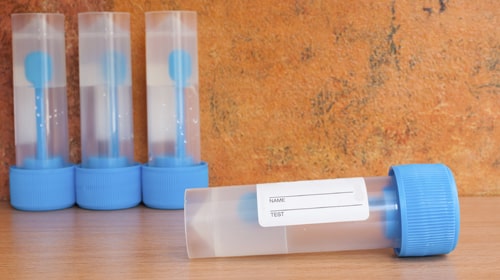
A stool analysis is a series of tests done on a stool sample to help diagnose certain conditions affecting the digestive system. Stool lab tests are used to find hidden blood.
Typically, occult blood is passed in such small amounts that it can be detected only through the chemicals used in a fecal occult blood test (FOBT). If blood is detected through a fecal blood test, additional tests may be needed to determine the source of the bleeding. The fecal occult blood test can only detect the presence or absence of blood; it does not indicate the potential sources of bleeding.
Screening Methods:
The fecal occult blood test (FOBT) typically requires the collection of three stool samples. The stool sample should be taken one day apart, rather than back-to-back, because colon cancers don’t necessarily bleed consistently. It is best to catch the fecal matter before it enters the toilet. You can purchase fecal occult blood test kits at the pharmacy to perform the test at home, or your doctor may give you the home test during your appointment. The stool samples are collected in a clean container. The container should be sealed in a plastic bag and put in the refrigerator until it is given to the doctor or lab. These are evaluated by sending the samples, in a special container and envelope, directly to the doctor’s office or designated laboratory for analysis.
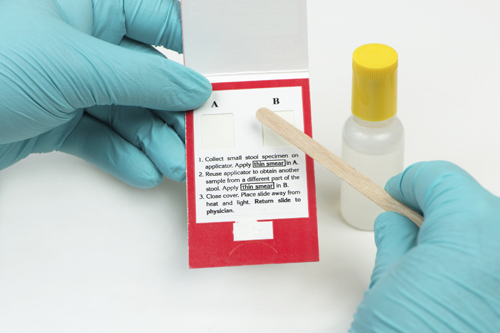
Preparation:
The fecal occult blood test results are largely affected by how you prepare for the test, so it is important to follow instructions carefully. Since certain foods can alter test results, a special diet is often recommended 48 to 72 hours before the test. Make sure no red food of any kind is eaten for two days prior to the test.
Watch this video to see what happens during a stool test.
Source: Colonversation
When:
To allow for early detection and prevention of colorectal cancer, the fecal occult blood test is recommended yearly for everyone. This annual test may be recommended along with a colonoscopy or sigmoidoscopy. A negative test result means that no blood was found in the stool sample during the testing period.
Spot Cancer
Get reminder emails, tips, and resources to develop your spotting cancer habit when you join the Cancer Detection Squad

Take Action
Regular screening & testing is necessary to to spot cancer before it’s too late. Talk to your doctor or medical provider today to learn what cancer screening & testing is right for you.
you can
when you download and use our guides
Get the Screening & Testing Stool Test
Download the guide to help you understand how a Stool Test works and to learn the best time to schedule a screening. Share with your friends and family to help raise awareness on the importance of early cancer detection.
Get the Screening & Testing Scheduling chart
Download the interactive Screening & Testing Scheduling chart to help you keep track of important screening and testing schedules. Download today!
Save a Body Monitoring and Screening & Testing schedule
Regular monitoring and testing is a life-saving habit. Save a Body Monitoring and Screening & Testing schedule to your Google Calendar or iCalendar to stay on track!
You're on Step 5

Step 1:
Signs & Symptoms
To monitor yourself for early cancer detection, you must know the cancer signs and symptoms. A listing of the various signs and symptoms are just a click away.

Step 2:
Body Monitoring
Cancer grows 24/7. Therefore, you must monitor your body to detect any abnormality between regular doctor visits or screenings. The tools and methods are described in this section.

Step 3:
Family History
Knowing and charting your family medical history will help your medical team as they develop a long-term wellness program suited to your unique needs.

Step 4:
Medical Team
Cancer is not self-healing. Therefore, when spotting a cancer sign or symptom, consider it a red flag that should cause you to consult your medical team immediately to determine if it is cancer or another illness.
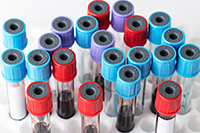
Step 5:
Screening & Testing
Not all cancer signs and symptoms are visible. You should establish specific times for the various cancer screening and tests with your medical team.


